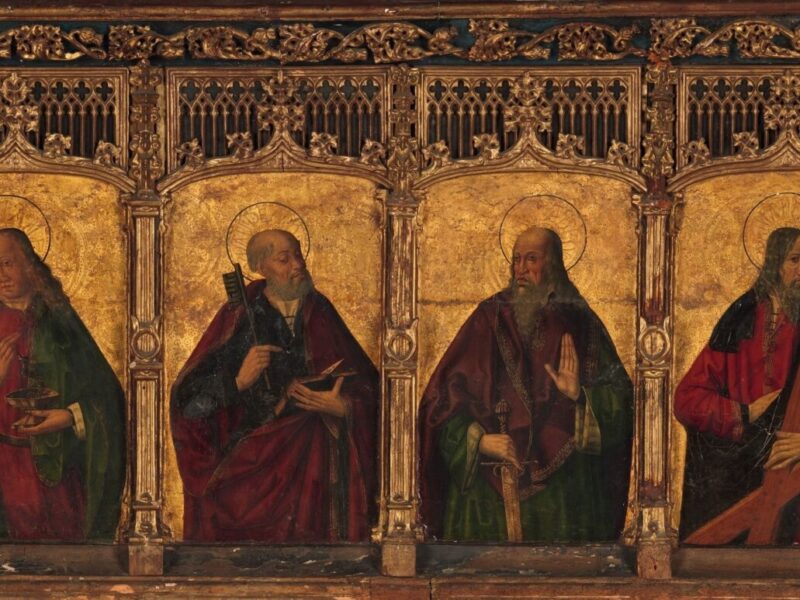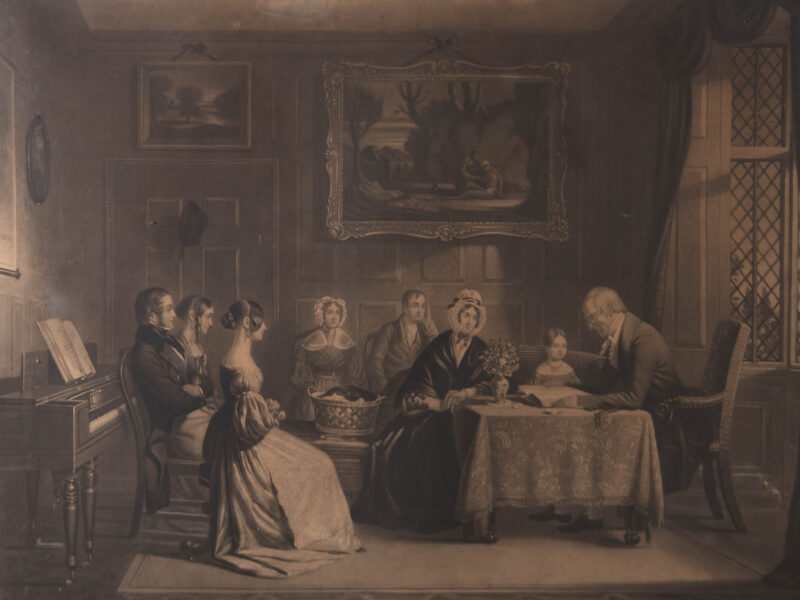Reading a little further (actually several chapters) in Knots Untied, Ryle has quite a bit to say about the Thirty-Nine Articles of Religion:
What the Articles are we have seen. What their position and authority is in the Church of England we have also seen. Ought we not now to see what are the great leading characteristics of the Articles? I think we ought, unless we mean to leave our subject unfinished. There are certain grand features in them, without descending into particulars, which stand out prominently, like mountains in a landscape. What those features are we ought to know. I shall therefore proceed to point them out to the reader, and try to impress them on his attention. If those who are induced to read them with attention, in consequence of this paper, are not struck with the singular distinctness and prominence of these leading features in the Articles, I shall be greatly mistaken.
To my eyes they stand out in bold, clear, and sharply-cut relief. I ask the reader to give me his attention for a very few minutes, and I will show him what I mean.
(1) Let us mark, then, for one thing, as we read the Articles, the strong and decided language which they use in speaking of things which are essential to salvation.
Concerning the nature of God and the Holy Trinity, —concerning the sufficiency and authority of Scripture, –concerning the sinfulness and helplessness of natural man,-concerning justification by faith alone,–concerning the place and value of good works,-concerning salvation only by the name of Christ; concerning all these grand foundations of the Christian religion, it is hard to conceive language more decided, clear, distinct, ringing and trumpet-toned than that of the Thirty-nine Articles. There is no doubtfulness, or hesitancy, or faltering, or timidity, or uncertainty, or compromise about their statements. There is no attempt to gratify undecided theologians by saying, “It is probably so,”–or, “Perhaps it may be so,”—or, “There are some grounds for thinking so,”—and all that sort of language which is so pleasing to what are called ” broad” Christians. Nothing of the kind ! On all the points I have named the Articles speak out boldly, roundly, frankly, and honestly, in a must unmistakable tone. “This is the Church of England’s judgment,” they seem to say, and “these are the views which every Churchman ought to hold.”
I ask special attention to this point. We live in days when many loudly declare that it is not right to be positive about anything in religion. The clergyman who dares to say of any theological question, “This is true, and that is false,—this is right, and that is wrong,”—is pretty sure to be denounced as a narrow-minded, illiberal, uncharitable man. Nothing delights many Churchmen so much as to proclaim that they“ belong to no party,”—that they are moderate men,”—that they “hold no extreme views.” Well! I only ask these Churchmen to settle matters with the Thirty-nine Articles. I want no clergyman to go a bit beyond the authoritative statements of his own Church ; but I do want every clergyman not to fall below them. And I shall always maintain, publicly or privately, that to call any one an “extreme” man, or a “party” man, because his doctrinal views are in harmony with the bold, decided statements of the Articles, is neither just, nor fair, nor reasonable, nor consistent with common sense. Give me the clergyman who after reading the Articles to his congregation, and solemnly promising to abide by them, acts up to his promise, and speaks out boldly, decidedly, and unhesitatingly, like a man, about all the leading doctrines of Christianity. As for the clergyman who, after declaring his assent to the Articles, flinches from their doctrinal distinctness, and preaches hesitatingly, as if he hardly knew what he believed, I am sorry for him. He may be a charitable, a liberal, and a learned man, but he is not in the right place in the pulpit of the Church of England.
In the next post I will mention what Ryle says about the Articles’ “studied moderation about things nonessential to salvation, and things about which good Christian men may differ.”
This post originally appeared at the Prydain website. It is republished here with Will Prydain’s permission.





'J. C. Ryle on The 39 Articles of Religion (Part 1)' has no comments
Be the first to comment this post!